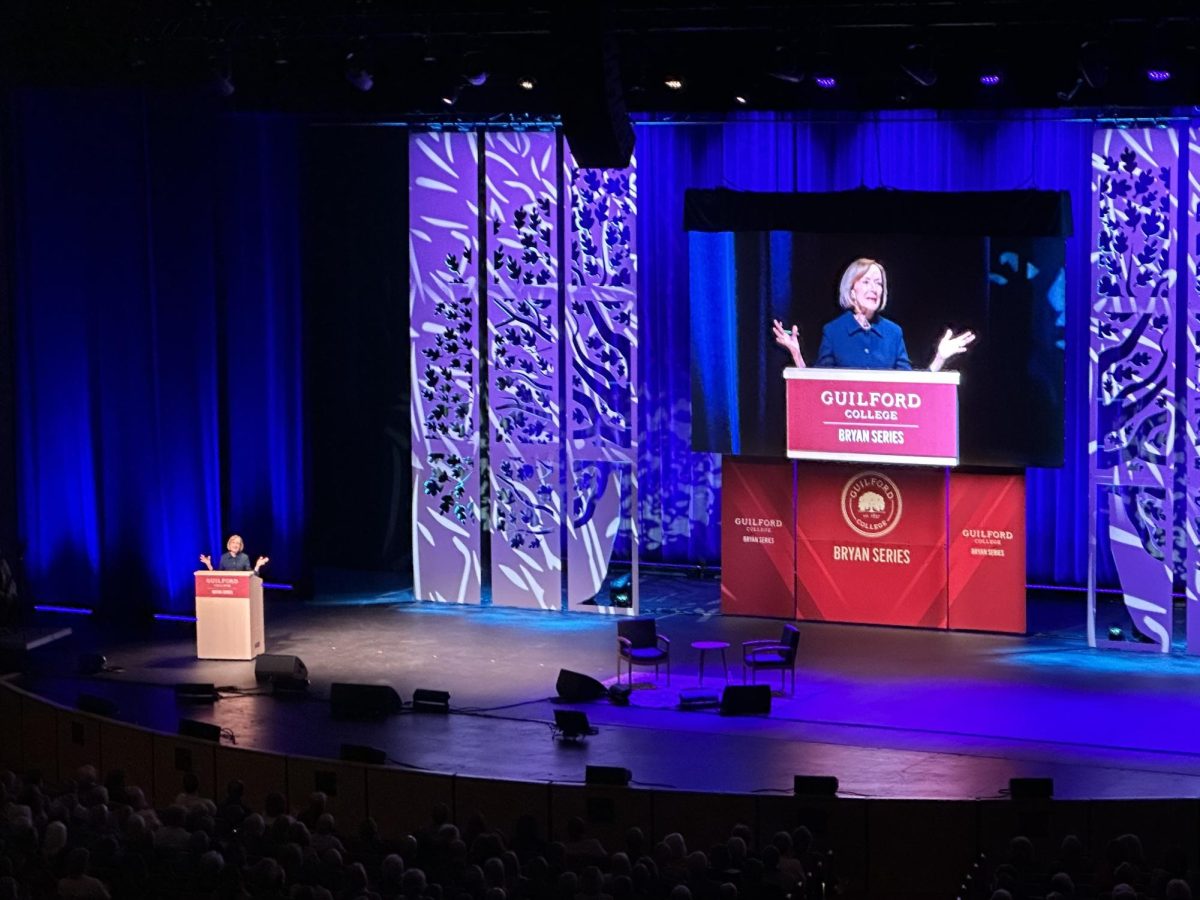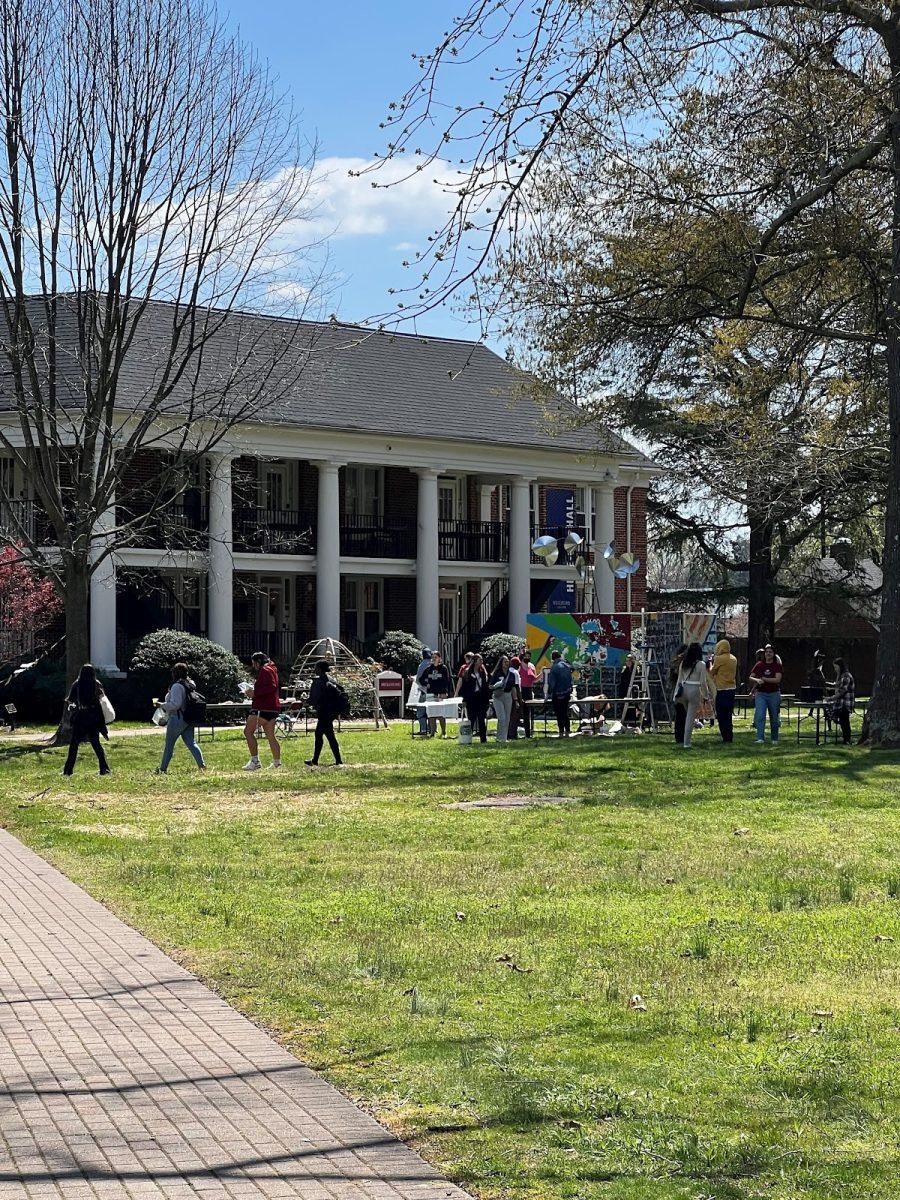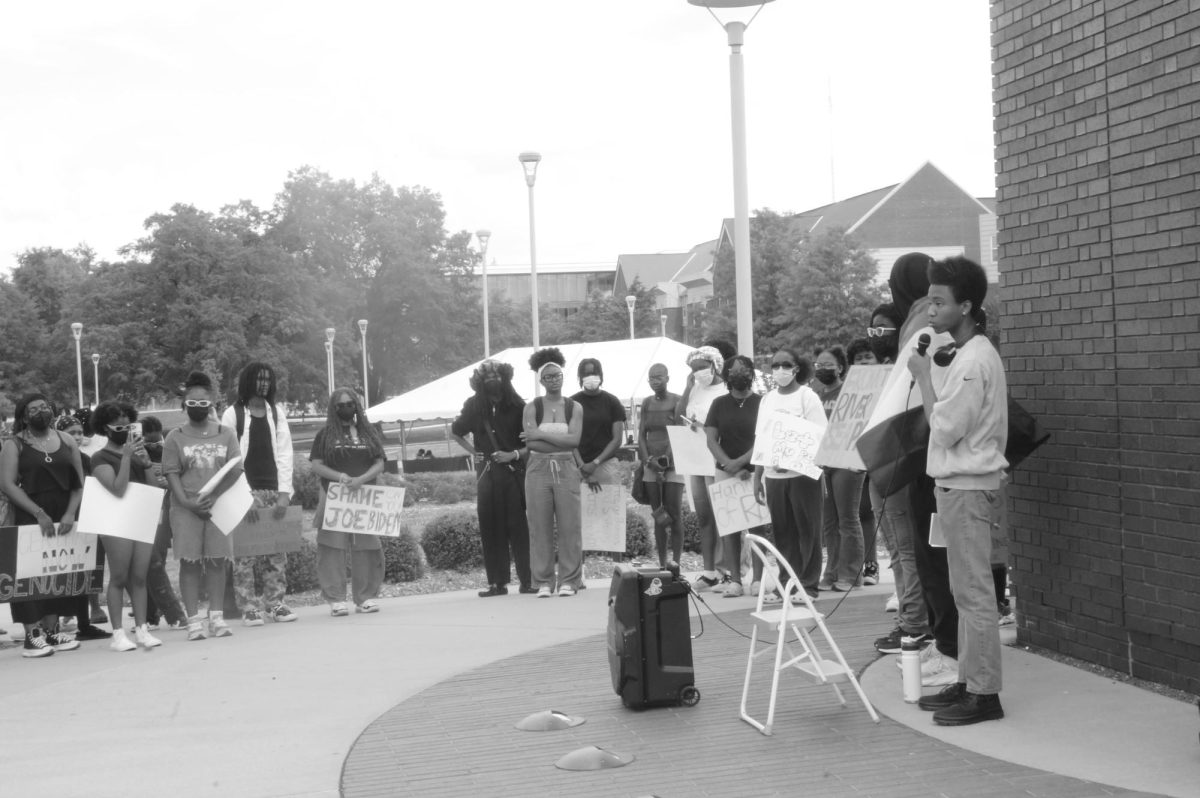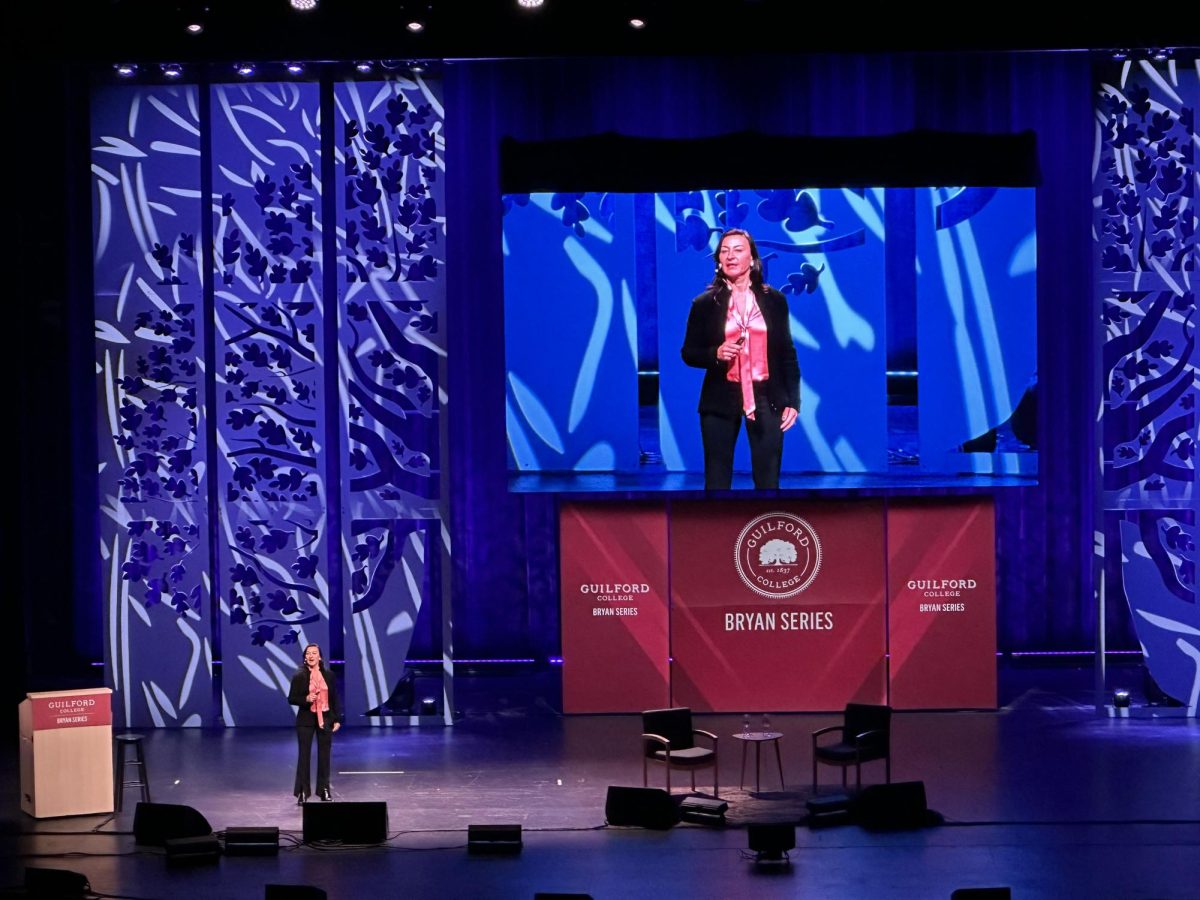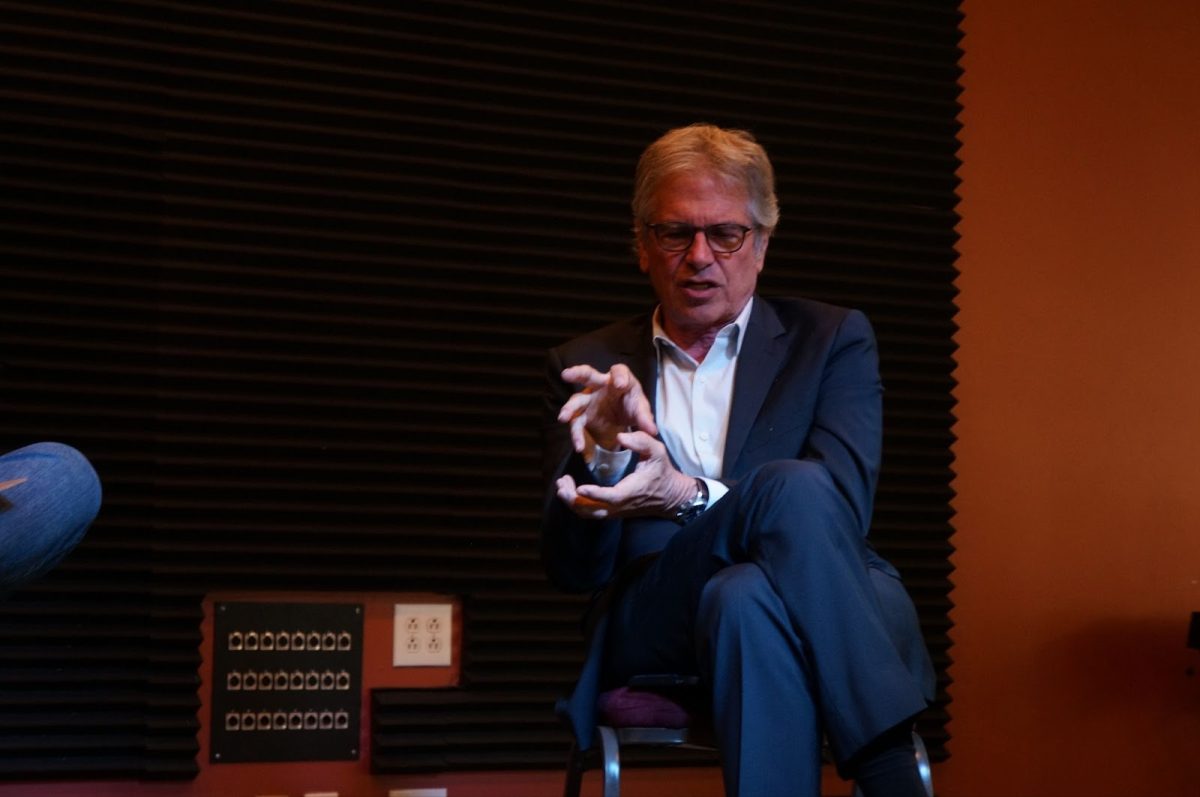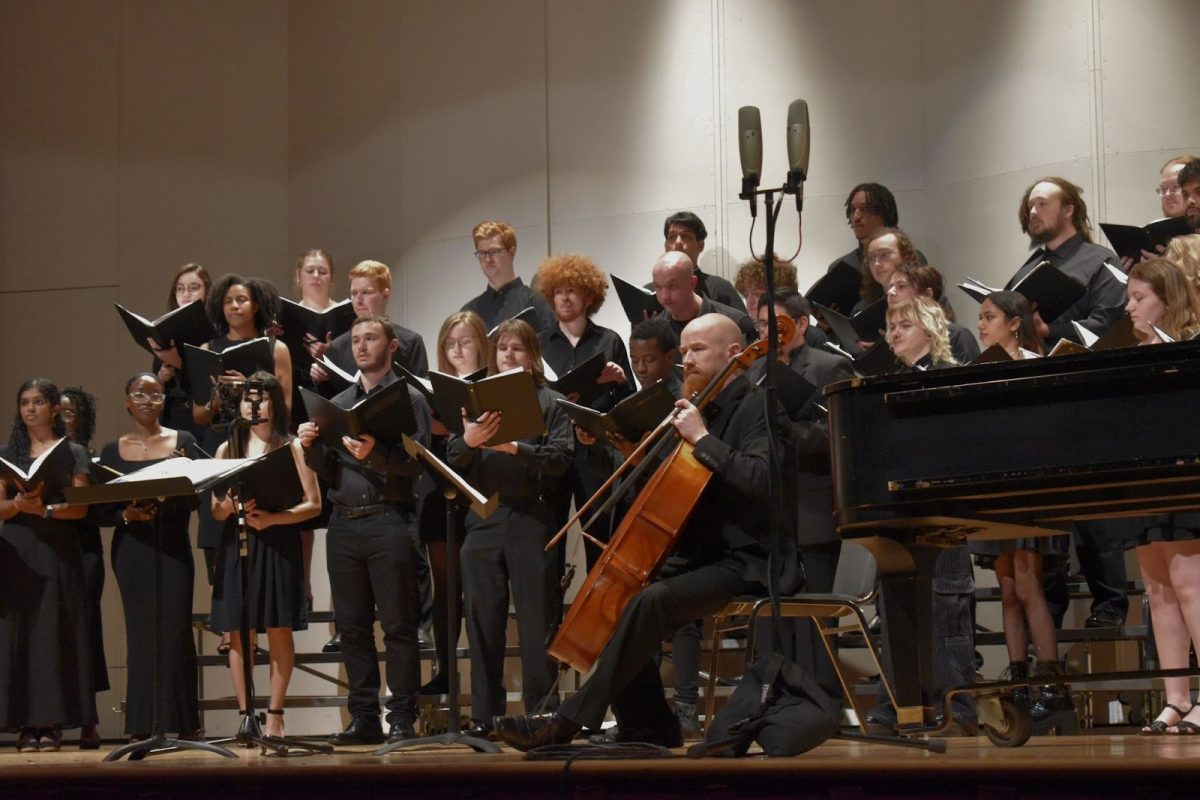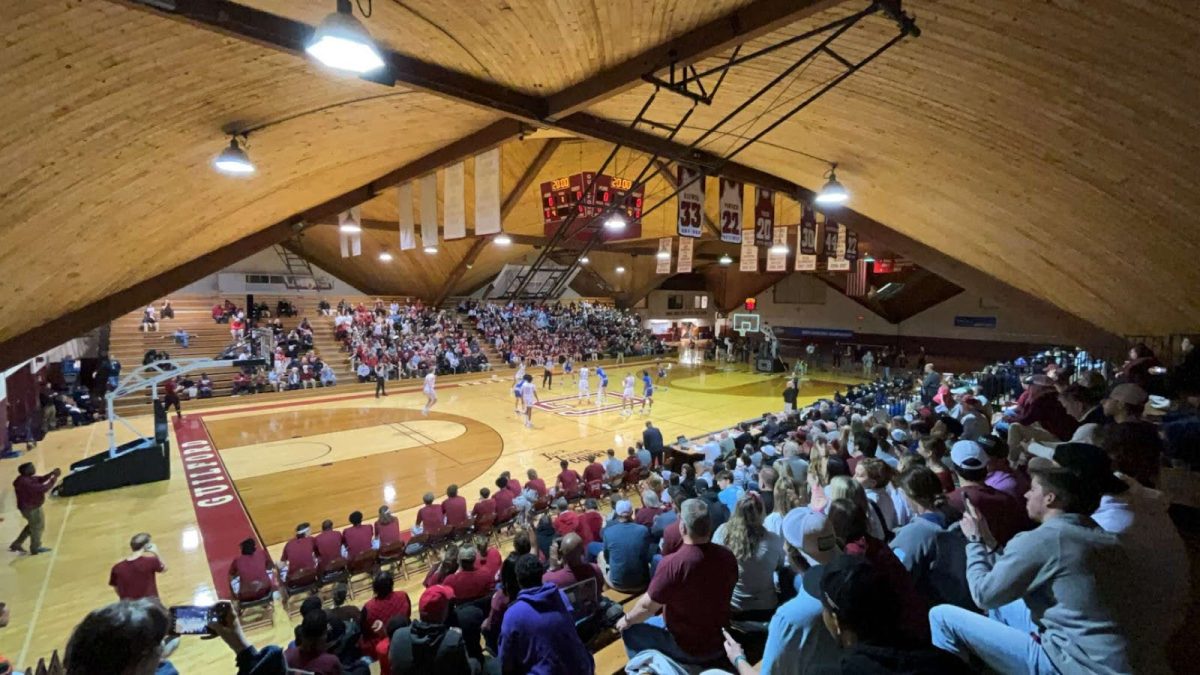“It’s a very different world than when I came to Washington in 1976 to cover the presidency of Jimmy Carter” was the opening sentence of Judy Woodruff’s April 9 talk for this season’s closing Bryan Series. It was among many other reflections and insights that she shared from her long career in broadcast journalism.
Woodruff’s illustrious journalism career stretches back 50 years, beginning with coverage of local politics in Atlanta and growing as Woodruff became the White House correspondent for NBC News, and then anchor, at different points in time, for NBC’s “The Today Show,” CNN’s “Inside Politics” and PBS’s “PBS NewsHour.”
After retiring from hosting “PBS NewsHour” in 2022, Woodruff began a new project titled “America at a Crossroads,” a biweekly program for PBS covering what Woodruff sees as a concerning and recent explosion in partisan tensions.
“In my 50 years of reporting…we have never seen Americans so divided, at least not in my lifetime,” Woodruff said.
“America at a Crossroads,” a two-year project ending in December 2024, has taken Woodruff to 20 states and Washington, D.C. Across the country, she has seen that the opinions of Americans about those of the other political party have “darkened.”
Woodruff cited statistics from Pew Research Center that found that in 2016, 47 percent of Republicans and 35 percent of Democrats believed that members of the other party were immoral; by 2022, these figures had risen to 72 percent of Republicans and 63 percent of Democrats. The merging of political and personal identity that this signifies makes respectful and productive conversation nearly impossible, Woodruff said.
Across the country, she has seen the decrease in respectful discussion over and over again.
In Tulsa, Oklahoma, where Woodruff was born and lived in her early years, contentious and contemptuous debates have erupted over the question of how to teach the city’s fraught racial history in schools.
In 1921, white supremacists burned down Tulsa’s thriving Black business district—the Greenwood neighborhood, also called “Black Wall Street”—and murdered hundreds of innocent Black people.
This event was buried until recently by Tulsa’s city government: Woodruff did not learn of the massacre until she was deep in adulthood, and her family members who still live in Tulsa did not learn of it until a few years ago.
As a part of “America at a Crossroads,” Woodruff visited her hometown, where Vanessa Hall-Harper, a Black city council member, took her to northern Tulsa.
After the 1921 massacre, the Greenwood district was rebuilt, but it was bulldozed by urban renewal and racial housing discrimination pushed Black Tulsans to move to northern parts of the city. Life expectancy is 10.7 years lower in northern Tulsa, where residents are primarily poor and Black, than it is in wealthier, predominantly white southern Tulsa.
The destruction of the Greenwood neighborhood, where Black Tulsans lived, worked, shopped and worshiped, was also the demolition of a space where Black residents built economic prosperity and a strong sense of community.
But even with the material effects of the massacre clearly evident, some Tulsans and Oklahomans do not want the massacre, and other parts of America’s racial history, to be taught in public schools.
Oklahoma’s Senate Bill 1775—an ostensibly well-meaning educational equality bill, but which has a clause stating that “no individual should feel discomfort, guilt or anguish” on the basis of race or sex buried within—is being used to prohibit discussions on race and racism in classrooms. Groups such as Moms For Liberty protest against the teaching of the Tulsa massacre in schools, describing it as “woke” or as part of Critical Race Theory.
To these groups, Woodruff asked: “How do you teach history if you don’t teach all of history?”
Across the country in the Penncrest School District, a rural northwestern Pennsylvania school board was paralyzed by similar debates.
Normally “sleepy, sedate school board meetings have become shouting matches,” Woodruff said, as parents debated trans student athletes, book banning, and how to teach history.
This school district received national attention and a visit from Woodruff when a school board member reposted an image of a school library’s LGBTQ+ book display to his Facebook page, captioning it that children at the school “aren’t at school to be brainwashed into thinking that homosexuality is okay.”
The school board member apologized and stepped down from the board, but Woodruff described how the district erupted into fights that became so personal and explosive that any sense of unity was destroyed.
And in Iowa, one of Woodruff’s colleagues talked to a group of two-time Trump voters who told her that they felt “labeled by Democrats” and were increasingly uncomfortable talking to someone from the other party.
When Woodruff’s colleague asked how they would feel if their son or daughter married a Democrat, one woman replied, “mine did. It didn’t go well. We’re estranged now.”
Some of these same Republicans, part of a focus group, then agreed that one couldn’t be both progressive or very liberal and a “real Christian. One of the voters interviewed said that this is because Christians worship a “God of right and wrong, a God of righteousness,” who they saw as disallowing things like transgender individuals and abortion.
In Steubenville, Ohio, a Rust Belt city that narrowly voted for Obama in 2008 but voted more than 70 percent for Donald Trump in 2020, Woodruff met a father who worked full time, but still needed to go to a food bank to feed his children. He and his wife told Woodruff that they will vote for Trump in 2024 because they believe he will bring food and gas prices down.
“We’re now able to surround ourselves with opinion from the time we wake up in the morning to when we shut our eyes to go to sleep,” Woodruff said. “Fact-based and fact-checked media is what I grew up on, but let me tell you, I wake up every day now feeling like a dinosaur.”
One thing separating the current media climate and the climate of Woodruff’s youth is the closure of 2,500 local newspapers, which Woodruff described during her talk as “essential gatherers of information” and “the glue that held our communities together.”
“Local news reminds people of what they have in common: shared challenges, shared culture,” Woodruff said.
“We have lots of reasons to be anxious,” she continued, “but our political system (and modern media) incentivize fear and party polarization,” which is only worsened by “our political leaders who call opponents un-American, evil and deplorable.”
As she concluded her talk, Woodruff praised “bridging groups” like Braver Angels who work to bring together Democrats and Republicans for coffee or lunch and civil conversations, and spaces like Guilford College, whose Quaker values and belief that “common ground is not something to be avoided, compromise is not a dirty word” can act as a panacea for the fraught political discourse of today.
“It is our duty more than ever as citizens to keep our heads about us and listen to differing opinions,” she said. “It is up to us to remember to be not just civil but to listen to each other. Do we really want to live in a country where one half of the country can’t stand the other side?”




